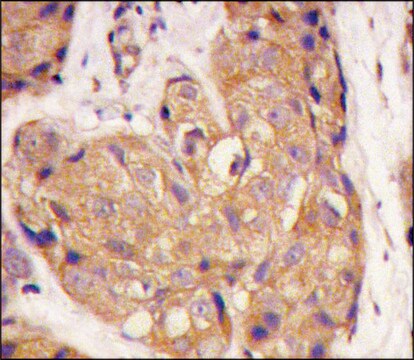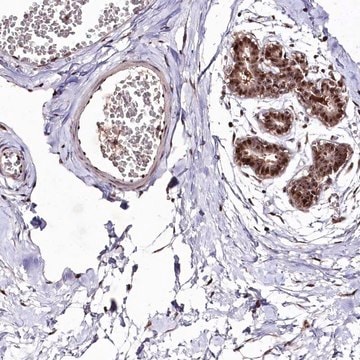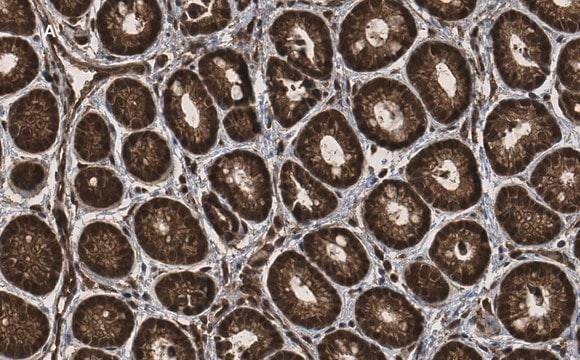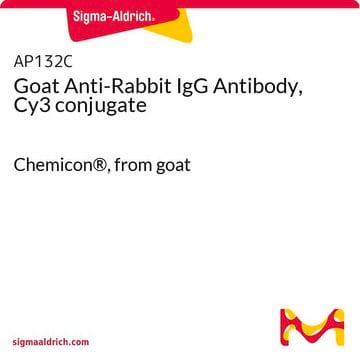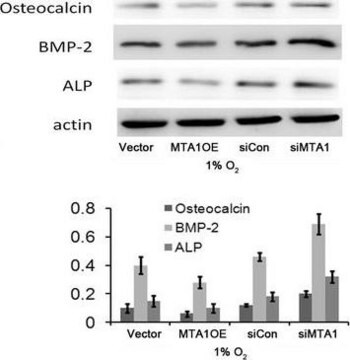MABD19
Anti-DMP-1 (CT) Antibody, clone 8G10.3
clone 8G10.3, from mouse
Synonym(s):
Dentin matrix acidic phosphoprotein 1, DMP-1, Dentin matrix protein 1, AG1
About This Item
Recommended Products
biological source
mouse
Quality Level
antibody form
purified immunoglobulin
antibody product type
primary antibodies
clone
8G10.3, monoclonal
species reactivity
human
species reactivity (predicted by homology)
mouse (based on 100% sequence homology), rat (based on 100% sequence homology)
technique(s)
dot blot: suitable
immunohistochemistry: suitable
isotype
IgG1κ
NCBI accession no.
UniProt accession no.
shipped in
wet ice
target post-translational modification
unmodified
Gene Information
human ... DMP1(1758)
General description
Specificity
Immunogen
Application
Dot Blot Analysis: A representative lot was used by an independent laboratory in DB. (Baba, O., et al. (2004). Matrix Biology. 23:371–379.)
Stem Cell Research
Osteobiology
Quality
Immunohistochemistry Analysis: 1:50-1:250 dilution of this antibody detected DMP-1 in human tooth sections.
Target description
Physical form
Storage and Stability
Analysis Note
Human tooth sections
Other Notes
Disclaimer
Not finding the right product?
Try our Product Selector Tool.
Storage Class Code
12 - Non Combustible Liquids
WGK
WGK 1
Flash Point(F)
Not applicable
Flash Point(C)
Not applicable
Certificates of Analysis (COA)
Search for Certificates of Analysis (COA) by entering the products Lot/Batch Number. Lot and Batch Numbers can be found on a product’s label following the words ‘Lot’ or ‘Batch’.
Already Own This Product?
Find documentation for the products that you have recently purchased in the Document Library.
Our team of scientists has experience in all areas of research including Life Science, Material Science, Chemical Synthesis, Chromatography, Analytical and many others.
Contact Technical Service